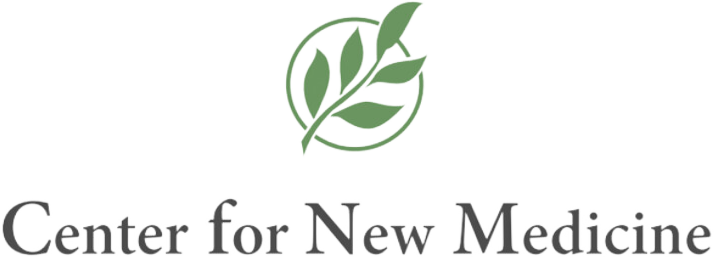If you’ve recently embarked on a cancer treatment journey, then chemotherapy has likely come up in the conversation. For many of the people we talk to, chemotherapy is an overwhelming concept. Side effects are often the biggest concern, as well as questions about recovery and overall outcomes.
We love to present patients with an alternative: a low-dose chemotherapy regimen. This option provides for a gentler and more manageable approach while still providing therapeutic benefits. At the Center for New Medicine in Irvine, CA, we help patients understand the practical aspects of receiving chemotherapy in a way that aligns with their personal health goals and lifestyles.
What Is a Low-Dose Chemotherapy Regimen?
A low-dose chemotherapy regimen refers to chemotherapy administered at lower-than-standard doses, often given more frequently than conventional protocols. Unlike traditional high-dose chemotherapy that aims to deliver the maximum tolerated dose, low-dose regimens focus on steady, continuous pressure against cancer cells while minimizing toxicity to healthy tissue.
This approach is designed to do the following:
- Reduce common side effects such as fatigue, nausea, and hair loss
- Support overall quality of life during treatment
- Maintain consistent therapeutic effects against tumors
Frequency and Scheduling
One of the most common questions about a low-dose chemotherapy regimen is how often treatments are given. Depending on the specific drug and patient needs, sessions may be scheduled weekly or biweekly, rather than once every few weeks as with standard chemotherapy.
This frequent, lower-dose approach helps maintain continuous pressure on cancer cells and can improve treatment efficacy. It also allows the body to recover more quickly between sessions compared with conventional chemotherapy cycles.
Duration of Sessions
Patients often wonder how long a low-dose chemotherapy regimen takes during each visit. The duration can vary depending on the specific medication, method of administration, and individual patient needs.
- Many intravenous low-dose chemo infusions may take 1–2 hours per session.
- Some medications may require only 30–60 minutes if given via a slower, continuous infusion.
- Oral low-dose chemotherapy can be taken at home under careful monitoring, often on a weekly schedule.
Shorter sessions and gentler dosing often make this approach more tolerable for patients, allowing them to continue daily activities with minimal disruption.
Recovery and Side Effect Expectations
Recovery after a low-dose chemotherapy regimen is generally faster and easier than with high-dose treatments. Patients can expect the following:
- Milder fatigue: Most patients report manageable tiredness rather than severe exhaustion.
- Less gastrointestinal distress: Nausea and vomiting are often minimal, especially with supportive therapies.
- Reduced hair loss: Hair thinning is possible, but significant loss is less common.
- Faster immune recovery: Lower doses put less stress on bone marrow, helping maintain healthy blood counts.
Because recovery is quicker, patients may find it easier to integrate supportive therapies such as nutrition support, IV antioxidants, and stress-reduction techniques during and between sessions.
Supporting the Body During a Low-Dose Chemotherapy Regimen
Even though low-dose chemotherapy regimens are gentler, supportive care remains essential. At the Center for New Medicine, we combine integrative therapies to optimize results and minimize side effects. These may include the following:
- Nutritional and vitamin IV therapy to strengthen the body
- Botanical and mitochondrial support for cellular health
- Hyperthermia or oxygen therapies to enhance tumor response
- Mind-body support, including meditation, acupuncture, and counseling
This integrative approach ensures patients not only receive effective cancer therapy but also maintain strength, resilience, and overall wellness.
Monitoring and Adjustments
A low-dose chemotherapy regimen is not one-size-fits-all. Patients are closely monitored throughout treatment with regular lab work, imaging, and symptom tracking. This allows physicians to do the following:
- Adjust dosing based on individual tolerance and response
- Modify scheduling to balance efficacy and recovery
- Incorporate complementary therapies safely alongside chemotherapy
This personalized monitoring helps patients get the most benefit from their treatment while minimizing unnecessary risk.
Practical Considerations
Before starting a low-dose chemotherapy regimen, patients should be aware of a few practical considerations:
- Scheduling: Weekly or biweekly visits require planning but are generally shorter than standard chemo appointments.
- At-home care: Some low-dose chemotherapy medications can be administered orally at home under guidance, offering convenience.
- Side effect management: Mild side effects are common, but integrative support can significantly reduce discomfort.
- Follow-up: Regular check-ins and lab monitoring are essential to ensure the regimen remains safe and effective.
These considerations help patients feel prepared and informed about what to expect throughout their treatment.
The Benefits of a Low-Dose Chemotherapy Regimen
A low-dose chemotherapy regimen offers several advantages over traditional chemotherapy, especially for patients seeking a balanced, integrative approach:
- Greater tolerance and fewer severe side effects
- Continuous therapeutic pressure on cancer cells
- Flexibility to combine with supportive therapies
- Improved quality of life and functional capacity
Patients who choose this approach often report feeling more in control of their care and more able to maintain daily routines while receiving effective treatment.
An Integrative Approach in Irvine
We’re firm believers in a low-dose chemotherapy regimen, which provides a nuanced alternative to conventional high-dose chemotherapy. Low-dose chemotherapy provides patients with effective cancer treatments while still minimizing toxicity, not sacrificing their entire quality of life.
This approach takes careful consideration, a team of integrative support, and effective monitoring. However, we believe that the empowerment and life change is well worth it.
If you are considering a low-dose chemotherapy regimen as part of your cancer treatment, visit cancercenterforhealing.com/low-dose-chemotherapy-overview.
At the Center for New Medicine, we provide personalized, integrative care plans designed to balance efficacy with quality of life. A low-dose regimen can be an effective, patient-centered option for those who want more control, flexibility, and holistic support during their cancer journey. Get started with us today!
